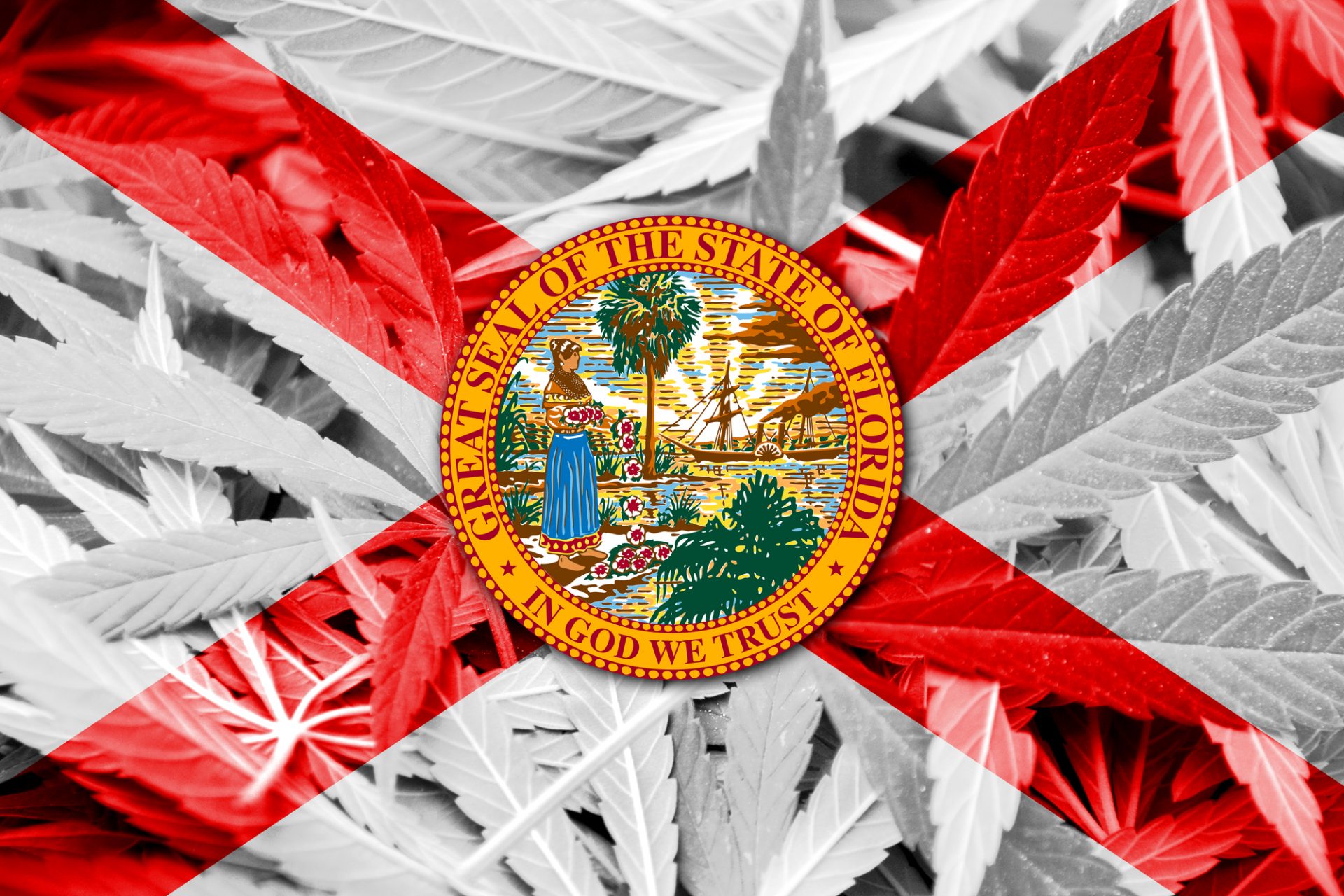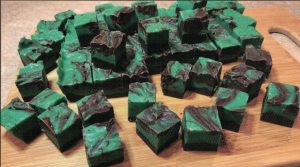In November of 2016, Floridians overwhelmingly voted for a ballot initiative called Amendment 2 that legalized high-THC medicinal cannabis for patients with debilitating diseases. The vote was so overwhelming, at 71.3% of the voters, the highest of any medical cannabis state vote in the country, that Floridians felt their fight was over, and the plain language of the amendment was about to become a constitutional law. They were about to have the constitutional right to possess medical cannabis in any form needed to treat their illnesses and pain.
The writers of the amendment made it self-implementing. No legislation was needed. The Department of Health just had to write the appropriate rules and regulations as dictated in what was now Article X, Section 29 of the Florida Constitution. Easy, right?
But the Florida Legislature would have none of that. They insisted that it would require an implementation bill to ensure rigorous regulation. They cited the Cole memo, a document from the Obama administration that came from the Department of Justice and written by the Deputy Attorney General, James Cole, in 2013, which stated, that the Federal government, which still considers medical cannabis illegal, will not prosecute or investigate states that have enacted, “Strong and effective regulatory systems to control the cultivation, sale, distribution, and possession of marijuana.”
However, in the first few months of the Trump administration, the new Attorney General, Jeffery Sessions, rescinded that memo. The Florida legislature, however, continued to work on their implementation bill.
The Grey Area
Since January, when Amendment 2 was set to go into effect, Floridians were dealing with the “Grey Area” of the law, stuck between the rules established in the Charlotte’s Web bill, SB1030 from the 2014 legislative session, and the new law. There were major differences between the two sets of rules. The previous bill mandated a 90-day waiting period from the first contact with a doctor certified to recommend medical cannabis, until the patients could be certified, gain a medical cannabis card, and purchase their medicine. Most doctors, concerned that they would lose their license, obeyed the 90-day wait as a mandate. But the big sticking point was whether they were certifying patients based on their debilitating conditions in a legal manner. Many doctors stepped into that foggy gray area daily to take care of their patients, not sure if the implementing bill or the new rules, if the DOH was to finally write them, would deem their decisions illegal.
It took a special session after the regular session ended to complete and pass SB8a, the implementation bill, and the cannabis community was not happy about the results.
But as of Friday, June 23rd, at the end of the business day, Floridians needing medical cannabis now had SB8a signed into law by Governor Scott.
No Smoking
There were many things that angered the patients who expected far more freedom to treat their illnesses and pain.
The bill stated that anyone found medicating in public, using product with more than .3% THC could be arrested and charged with a first degree misdemeanor. If a law enforcement officer catches a patient with their medicine and the patient can’t produce their MMJ card, they are subject to a second-degree misdemeanor. Cultivation, or home-grow was still a felony.
One main bone of contention by many was the ban of smoking. Many reasons were given in the legislative process as to why, including bad research claiming lung disease, heart and cancer issues, and comments such as “it’s an unhealthy habit” (but apparently healthier than drinking alcohol to excess in the minds of some legislators). But the real fact was that it was easier to tell if a patient was using high-THC product simply by noticing if they were smoking it.
Representative Carlos Guillermo Smith publicly recommended that the state should be sued to include smoking. After the bill had passed in Special Session, he stated, ‘Tm very disappointed. In fact, I’m disgusted. Once again, the Florida legislature has turned its back on Florida voters and ignored the will of the voters on medical marijuana. They did it with redistricting years ago, they did it regarding land and energy constitutional amendments, and now they are doing it with medical cannabis.”
I filed this because many patients in Florida don’t have enough to pay for their medicine, let alone a lawsuit
Joe Redner
Joe Redner and Florigrown
Interestingly, the first lawsuit to hit Tallahassee was not about smoking, but about home-grow. Joe Redner, an entrepreneur, adult entertainment mogul erstwhile politician, and first amendment advocate, fired the first salvo at the State of Florida and the Department of Health by suing them for the right to grow his own medicine.
Joe had been suffering with stage four lung cancer. As a vegan, he relied on juicing the entire plant to fight the disease, so he filed the suit for his own survival. But that was not the only reason.
“I filed this because many patients in Florida don’t have enough to pay for their medicine, let alone a lawsuit,” Redner stated. “Medical marijuana can cost some patients $2,000 a month plus doctor visits. No Medicaid, no health insurance, no VA benefits will cover this medicine. And yet a mom who’s using low THC cannabis to control her child’s seizures can stick a plant in the ground and make her baby’s medicine for around 30 bucks a month if she can grow her own. And 71 % of us voted for an amendment that clearly gives her that right. I am fighting for her right, and every patient’s right.”
Motions and Injunctions, oh my!
The Department of Health had filed a motion to dismiss, but Judge Gievers denied that request. The DOH attorneys, including one named Amber Stoner, offered reasoning that Mr. Redner never applied for a license to grow. But judge replied, ”…it is clear that the plaintiff’s claims are ripe, given his rights under the constitution and the importance of his being able to access the medical marijuana to keep his cancer from recurring. The motion to dismiss for failure to state a cause of action, failure to exhaust administrative remedies, and lack of ripeness, must be denied.”
Joe had asked for an emergency injunction, so he could legally grow his medicine as soon as possible, but the judge denied that motion as well. But the biggest news came when the judge declared, that Redner has the constitutional right as a “qualifying patient” to possess growing cannabis plants.
Both the Redner’s lawyers and the attorneys for the state concurred that this fact is the main factor in the case.
Judge Gievers stated in her ruling, “The greater weight of the credible evidence supports some of the factors inherent in the proper granting of the temporary injunction sought, specifically the constitutionally recognized right of the plaintiff, as a qualifying patient to possess growing plants.”
Now that this question had been decided in Redner’s favor, all that remained was to determine the process for home grow, which would be determined at trial.
“This is the beginning of the end for this situation;’ Redner stated. And, in regard to the legislators that denied home grow in the law to implement Amendment 2, “Either they never read it, or they can’t read!” Joe snapped.
The first round in the trial had been handily won. Sen. Lauren Book saw far more. “This changes everything!” she stated.
The Redner Trial
On March 21, the case went to trial. The defense stated that the judge, seated in front of him, was wholly wrong when she stated that Mr. Redner had the right to possess a healthy growing plant, and that the voters, as well as the supreme court who approved the ballot measure, did not know what they were reading when they passed the bill.
On April 11, Judge Geivers gave her ruling. Not only did she state that Joe had the right as the plaintiff to possess and grow the plants and juice them for his medicine, but Gievers wrote that the amendment gives the state’s medical marijuana regulators “no authority by which it may limit routes of administration for a qualifying patients to administer medical marijuana;’ and said the Department of Health “has no authority to modify the rights of patients that Floridians have chosen to place” in the state’s governing document.
The State immediately appealed the decision to the 1st District Court of Appeals (DCA), creating an automatic “stay;’ preventing Joe from enjoying the ruling and growing his medicine. Mr. Lirot immediately filed a motion to request a Vacate of the Stay, stating the possibility of irreparable harm to Mr. Redner. It was granted by Judge Gievers, lifting the stay. The state appealed THAT decision, a new stay was put in place, and the 1st DCA upheld the second stay, and the case remains awaiting the appeal case to this day. No date has been set. A request was made to certify the case immediately to the Supreme Court, circumventing the 1st DCA, but the request was denied.
Trial #2 - John Morgan
The second lawsuit was filed on July 17th, 2017. John Morgan, the ubiquitous lawyer, head of the largest law firm in the country, the financier of Amendment 2, and one of the framers of that document, went to Tallahassee with the hashtag #NoSmokelsAJoke.
He assembled an “A-list” of lawyers to take on the task of suing the state, including Jon Mills, former Speaker of the House, professor of Law at UF, expert at constitutional law, and lead writer of Amendment 2. After 10 months of pretrial hearings, gestures, entering and exiting of plaintiffs, the team of plantiffs, Cathy Jordan, Diane Dodson, Florida for Care (FCC), and Patients United for Medical Marijuana (PUMM) stood before Judge Karen Gievers recently for three and a half hours.
But for Cathy, who was diagnosed with ALS in 1986 and was saved by cannabis in 1989, this was the culmination of over 20 years of battles with Florida government to make smoking the herb – the only way that works for her and keeps her alive – happen. As the oldest ALS patient known, she was a living testament to the plant’s efficacy, but only when she smoked it.
And a few weeks later, it did…
At 5:10, after the Clerk of Court had already gone home for the three-day Memorial Day weekend, Judge Gievers sent her final ruling to the lawyers in involved – former Speaker of the House Jon Mills, George Coe, Karen Dyer, Marcy Lynch, and of course, John Morgan.
Morgan tweeted, “When I start something I finish it. Truth prevails! The voters will be done! #BELIEVE #ForThePeople #NoSmokeIsAJoke”
The Findings
The 22-page ruling was long and pointed. The first big words that stood out were “the court finds that the statute is invalid because it conflicts with the Florida Constitution and prohibits a use of medical marijuana that is permitted by the amendment: smoking in private.”
“Nothing in this section shall limit the legislature from enacting laws consistent with this section.” But the statute they wrote was inconsistent, and therefore, invalid.
She noted that the “expert testimony” the DOH offered “was quite frankly, irrelevant.”
She also wrote that the legislature must heed the constitutional rights Floridians placed in the Constitution in 2016.
Essentially, she agreed with Speaker Mills argument that the amendment was meant to be self-implementing, and that the legislature shouldn’t have had to write anything to implement it. The Department of Health just had to write the rules and regulations, which they still hadn’t done, at least not right.
Deja Vu
But just 10 minutes after the judge’s ruling was posted and after the clerk’s office was closed for the long holiday weekend, deja vu struck, all over again. The Governor’s office filed an appeal, which will automatically generate a stay, blocking the ruling from becoming effective, unless Morgan and his team filed a Motion to Vacate the Stay, and Judge Gievers approves it. Then it would be up to the governor’s office to file an appeal to the motion to vacate the stay, which is what they did in the Redner case.
That week, Morgan held a press conference, asking the governor to lift his appeal, to put politics aside, and be humanitarian about the situation.
There was no response from the governor’s office, other than he felt he must follow the law.
So, the Motion to Vacate was made and granted, and the appeal of the vacate was filed again by the state on the vacate, which was once again upheld by the 1st District Court of Appeals (DCA). Again, the request was made to certify the case all the way to the State Supreme Court, which, again, was denied.
The case still awaits the appeal case, as the stay remains in place, and no trial date has been set.
Next Steps
Rallies have been held in cities across the state, pleading with the governor to retract his appeals. The response from the governor was that those speaking at the rallies were disingenuous, since medical cannabis was already available in Florida, ignoring the premise of the rallies that they were about the bans on smoking and home-grow, which many patients deem vital to their health and, in some cases survival.
These cases are still in the 1st DCA, and may be there for some time. We can only hope that the plaintiffs survive to see them play out to their ultimate ruling, which will, in all probability, be in the Florida Supreme Court. Someday…





